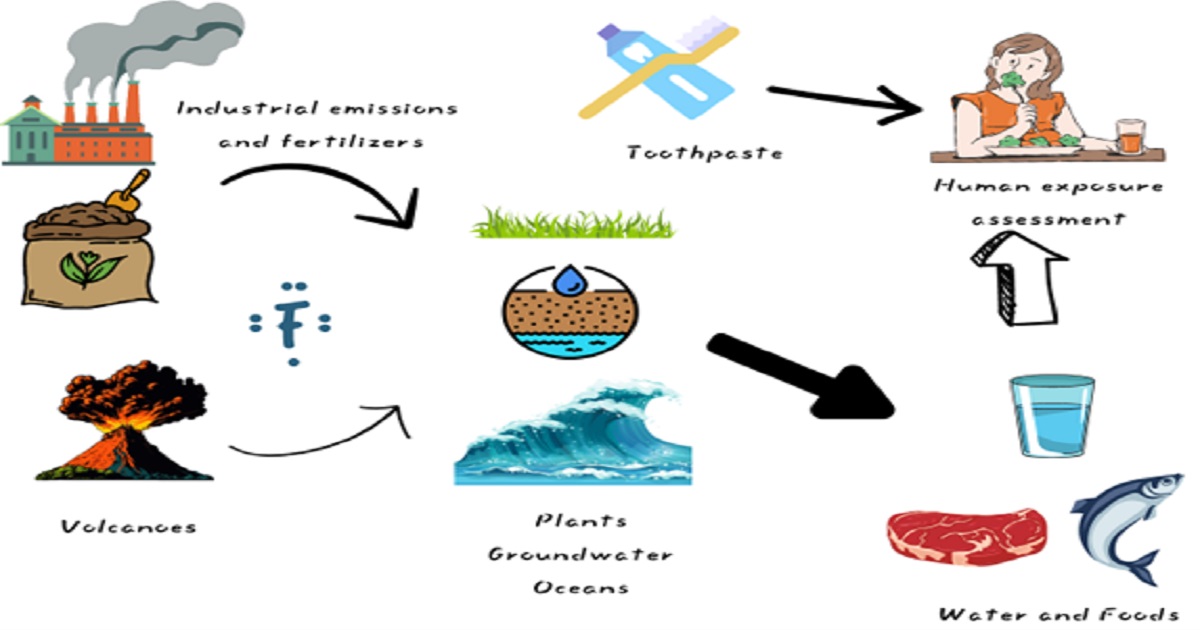- 2.5Impact Factor
- 5.5CiteScore
- 20 daysTime to First Decision
Recent Advances in Research on Fluoride Exposure and Risk Assessment
This special issue belongs to the section “Environmental Sciences“.
Special Issue Information
Dear Colleagues,
Fluoride is widely used in dental products and water fluoridation to prevent tooth decay. However, growing concerns have emerged regarding the potential health risks of excessive fluoride exposure. This research line addresses these concerns and provides scientifically sound information to inform public health decision making.
This research line aims to:
- Identify sources of fluoride exposure: This includes assessing both natural and anthropogenic sources, such as drinking water, different drinks and foods, toothpaste, and industrial emissions.
- Evaluate the health effects of fluoride exposure: This involves examining the potential adverse effects of fluoride on various organ systems, including teeth, bones, and the nervous system.
- Develop risk assessment models: These models will predict the likelihood of individuals or populations developing fluoride-related health problems.
- Inform public health policies: The research findings will guide the development of evidence-based public health policies to minimize fluoride exposure and protect public health.
This Special Issue aims to comprehensively understand the complex relationship between fluoride exposure and human health. The findings from this research will be essential for protecting public health and ensuring the safe intake and exposure of fluoride in all ambits.
Dr. Juan Ramón Jáudenes-Marrero
Prof. Dr. Arturo Hardisson
Guest Editors
Manuscript Submission Information
Manuscripts should be submitted online at www.mdpi.com by registering and logging in to this website. Once you are registered, click here to go to the submission form. Manuscripts can be submitted until the deadline. All submissions that pass pre-check are peer-reviewed. Accepted papers will be published continuously in the journal (as soon as accepted) and will be listed together on the special issue website. Research articles, review articles as well as short communications are invited. For planned papers, a title and short abstract (about 250 words) can be sent to the Editorial Office for assessment.
Submitted manuscripts should not have been published previously, nor be under consideration for publication elsewhere (except conference proceedings papers). All manuscripts are thoroughly refereed through a single-blind peer-review process. A guide for authors and other relevant information for submission of manuscripts is available on the Instructions for Authors page. Applied Sciences is an international peer-reviewed open access semimonthly journal published by MDPI.
Please visit the Instructions for Authors page before submitting a manuscript. The Article Processing Charge (APC) for publication in this open access journal is 2400 CHF (Swiss Francs). Submitted papers should be well formatted and use good English. Authors may use MDPI's English editing service prior to publication or during author revisions.
Keywords
- fluoride
- risk assessment
- dietary intake
- environmental exposure
- environmental pollution
- natural pollution
- drinks
- water
- foods
- toothpaste

Benefits of Publishing in a Special Issue
- Ease of navigation: Grouping papers by topic helps scholars navigate broad scope journals more efficiently.
- Greater discoverability: Special Issues support the reach and impact of scientific research. Articles in Special Issues are more discoverable and cited more frequently.
- Expansion of research network: Special Issues facilitate connections among authors, fostering scientific collaborations.
- External promotion: Articles in Special Issues are often promoted through the journal's social media, increasing their visibility.
- e-Book format: Special Issues with more than 10 articles can be published as dedicated e-books, ensuring wide and rapid dissemination.

